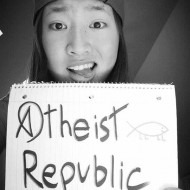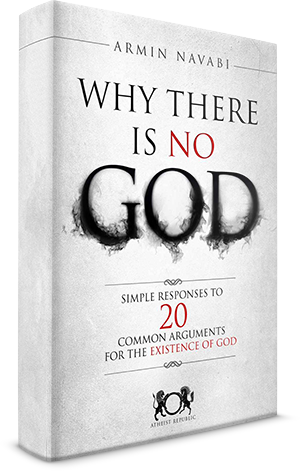I am going to post a summary of what I've written here which is in bolded words (just in case everything I've written here is too long for you to read and that you only have time and patience to read the summary itself). But everything I've written here is very interesting and important. So I would recommend reading all of it.
[b][u]Summary[/u]: God only exists in the form of a concept and this concept exists in the form of the functioning of the neurons in people's brains that have created this concept (and possibly in other objects based on their grouped atoms, but I am not too sure on this). But God does not exist at all in any other sense (whether it be supernatural or in any other sense) and to say that the concept itself of God does exist in some other sense besides scientific functioning in this universe would be delusional. Same thing with value, worth, and beauty. These are all concepts that can be measured in people's brains and we can determine the value, worth, and beauty of that person and maybe in other objects. This would obviously apply to any other meanings we create in life. But to say that these concepts/meanings do exist in some other sense besides scientific functioning in this universe would be delusional. Some philosophers/monks/other people might say that value, worth, beauty, or other created meanings are precious things about you and this universe that cannot be reduced and is something that cannot be held in the grasp of science. But based on everything I'm saying here (which is something I came up with purely on my own and is my own perspective in life that actually might be true), these types of people would be delusional.
Science is what explains reality while philosophical views such as that concepts such as value, worth, and beauty are things not of science and/or cannot be reduced are delusional views. Even Stephen Hawking himself states that science is all there is and that philosophy is dead. Here is a link that explains this:
[url]http://www.telegraph.co.uk/technology/google/8520033/Stephen-Hawking-tel...
Now as for what I'm about to say below, your conscious is what makes you "you." So the amount (strength) of messages of value, worth, and beauty in these people's conscious defines their amount of value, worth, and beauty as people. Also, if you are going to ask something such as "How exactly do you measure these, and post some examples of the process and the verified results. How exactly do you determine, (and on what scales) do you determine what you claim?" My answer to that would be that it would be the exact same process and scale that would be used in measuring the function of neurons/atoms/subatomic particles in the brain since it is the functioning of these things that create messages such as value, worth, and beauty in the first place in this person's brain. Even if these concepts in the brain arose out of a process that is much more complex than simply atoms/subatomic/particles and/or that the brain is constantly changing so fast that it would be impossible to get any measurements at all, we just might be able to get individual measurements through science in the future anyway. The scale and processes might not exist now or even the ability to get individual measurements from something that is constantly changing so fast. But they just might exist in the distant future.[/b]
From a scientific point of view, losing a part of your conscious would make you the lesser person (since your conscious is what makes you "you"). Now one might say that you would still have full human value even if you were to lose a part of your conscious. But if you were to be completely dead right now (lose all your conscious functions), would you then still be considered a full human being? Or would you then be considered as the lesser person now? I think you would obviously be considered the lesser person. Therefore, to lose a part of your conscious is the very essence of dying without actually being dead. Therefore, you would be a lesser person if you were to lose a part of your conscious (such as if you were to lose your ability to experience pleasure due to depression or emotional numbness). It doesn't matter how much others value you, what great things you do in life, and how much you helped others. The scientific fact is that you are still the lesser person no matter what. Unless, of course, your brain fully makes up for that loss in other conscious brain areas. But it must fully make up for that loss. Otherwise, you would still be considered the lesser person.
Also, if you are going to say something such as that we are constantly changing and that, because of this, we can't compare things to other things and such, although you are right that we are all constantly changing and such, we can still compare because time itself can be split up into individual units. The smallest units of time possible are all units in which we can then make the comparisons if we develop the technology in the future that can make comparisons based on each individual unit of time. You would compare yourself to others, your former self, as well as who you would be without that loss based on each individual unit of time. You would compare the amount of brain functioning in one person to the brain functioning of another and say if that person is more or less of a person in comparison. As for things such as value, worth and beauty (which are things I will explain about below), you would also measure this in someone's conscious and compare that to the measurement of value, worth, and beauty in another person's conscious and say which one of these two people has the greater amount of value, worth, and beauty. You would also make this same comparison compared to who you were before in the past. If, for example, you had more value, worth, and beauty in the past and that was something that was scientifically measured in the past, then we could measure the amount of value, worth, and beauty that you have now and we would then compare the measurement that was made now to the measurement that was made in the past. As for comparing yourself to who you would be with the fullest amount of value, worth, and beauty possible (no loss), you would then measure the amount of full value, worth, and beauty that a human brain can possibility achieve and compare your amount of value, worth, and beauty to that.
The words "more" and "less" are words that have an objective meaning in science. If something gains function, then it's obvious that thing has more function. If this thing loses some function, then it obviously has less function. Therefore, since who you are as a person is all your conscious brain functions, if you were to lose any one of these functions (such as your ability to experience pleasure due to depression or emotional numbness), then that would make you a lesser person compared to who you were before with at least more conscious brain functioning and in comparison to others who do have more conscious brain functioning. But since who you are as a person is only your conscious brain functioning and not your body, having a physical disability would not make you a lesser person. But as long as your brain is unable to fully make up for that loss of pleasure in other conscious brain functions, then you will remain as the lesser person. There are such people whose brains cannot fully make up for such losses because, as I've explained before, everyone is different and not everyone's brains will be able to fully make up for these losses. So these are the types of people who would remain the lesser people.
As for value and worth, it is our brains that give value and worth to things and value and worth is something that is defined by how much conscious brain functioning we have since it's, again, our conscious brain functions that generate value and worth in the first place. So in other words, your conscious brain functioning that came up with value and worth IS value and worth itself. And since our conscious is the function of leptons, quarks, etc., this would also mean that other objects have value and worth as well since they are the functioning of leptons, quarks, etc. as well. So value and worth are things that can be measured in our conscious and in other objects. Now as for something such as perceived beauty towards an object, we would find one atom of that object that has the exact same properties of an atom in this person's brain that has created the message of beauty and we would then keep on doing this for all the atoms in this person's brain that have created this message of beauty. After which, we would then have a specific selected group of atoms in this object that match all the atoms in this person's brain that have created this message of beauty. This specific selected group of atoms in this object would be considered the message of beauty itself. We can actually keep on doing this for even more atoms in the object beyond the amount of atoms in this person's brain that have created this message of beauty in order to find even more beauty in this object until we have the full actual beauty of the object. Also, this grouping method can be used for other parts of this person's brain that have not created this message of beauty. However, if that's not how it would work at all and this grouping method is somehow false, then there would be no beauty in objects/other parts of this person's brain and it would only be something that can be measured in the person's brain functioning that has created this message of beauty.
But if you are going to say something such as that beauty is not in the atoms of objects just like how the beauty of a painting is not in its colors, what I would have to say about that would be that the full actual beauty of the object (which has been measured based on its grouped atoms) will still create a different subjective response in different people (just like how I could look at a person's brain and measure the amount of beauty that was created by this person's brain, but experience a different level of beauty in my own brain from witnessing the amount of beauty in this other person's brain through seeing the actual neurons themselves that created this message of beauty in this person's brain).
Now if you find great value and worth towards something, that would obviously mean that the functions in your brain responsible for perceiving value and worth towards those things is highly functional. But even so, if you were to lose a part of your conscious and you were to say something to yourself such as that: "I may have lost this part of my conscious, but my life now has much more value and worth than before since I have now decided to do great things in my life and help those who are suffering from this same loss," this all comes down to how much value and worth you have as a person based on the amount of conscious brain functioning you have (which is the functioning of all the subatomic particles/neurons that create messages such as value and worth in your brain as well as the grouped subatomic particles/neurons in other parts of your conscious) and the functioning of objects as well as other things in your life (in terms of all their grouped subatomic particles/atoms). If the functions of your conscious brain (the grouped subatomic particles/neurons) do not make up for what you have lost in the other conscious areas of your brain (the grouped subatomic particles/neurons in these parts of the brain), then you would possess less value and worth in your brain (again, value and worth being the brain functioning that has come up with message such as value and worth as well as the grouped neurons of other parts of the brain) and it would be delusional for you to somehow think that you would be a more valuable and worthwhile person.
Now if your brain fully makes up for this loss of value and worth in your brain, then your brain would possess the same amount of value and worth as you were in the past when you did not have such a loss of brain functioning because the amount of brain functioning that defines value and worth that you have now as opposed to before your loss is now the same. And if your brain even goes further beyond making up for that loss in other conscious brain areas, then you would possess more value and worth in your brain than ever before. As for a given example here of two people who have not lost any conscious brain functioning and have both found value and worth in life and which one of these people would be more of a person with greater value and worth in their brains, it still all comes down to which one of these people has the greater amount of conscious brain functioning. But if they were to somehow have the exact same amount of conscious brain functioning overall, then they would both possess the same amount of value and worth in their brains.
Now value and worth are nothing more than labels (words) for our conscious that creates messages such as value and worth and are labels for the grouped subatomic particles/atoms of other objects that are similar to the grouping and such of the subatomic particles/atoms that have created the messages of value and worth in our brains. Again, value, worth, and beauty ARE the functioning of our leptons, quarks, etc. in our conscious that have created these messages and are the functioning of the grouped leptons, quarks, etc. of other material/energy.
Now here are some questions from some people I have addressed regarding what I have presented here. I wish for you to read them as they are very important and will address any questions you might have:
[quote]How did you formulate this definition of consciousness? What evidence supports your position? You could argue that when people sleep they temporarily lose a part of their consciousness. Does that make them lesser beings? Of course not.[/quote]
It would in that given moment. But since the brain is, I'm sure, able to fully make up for that loss upon wakening, then when the person is awake, they would be back to being a full person. But, again, if it's a loss that the brain cannot fully make up for in other conscious brain areas for your entire life, then you would be the lesser person for your entire life.
[quote]A second flaw I find in the argument is the concept of lesser and greater people. Several years ago I lost total hearing in my right ear; with medical help and the miracle of self healing I gained about 45% of the hearing back. As a result of that hearing loss, I have gained a level of empathy I never had with regard to hearing loss in other people. So on the one hand I am a "lesser person" because of my hearing loss. But on the other hand I am a "greater person" because I have a greater understanding of people with hearing losses. (I believe that this has also extended to other physical disabilities.)
So how do those two changes balance out? Am I a net better person, or a net lesser person?[/quote]
It's all just a matter of conscious brain functioning and nothing more. So if what you have lost (in this case, the ability to hear which is a part of the conscious since it's your conscious that has the ability to hear) is not fully made up for by empathy (which is yet another conscious brain function), then you will remain the lesser person.
[quote]One huge exception I have with the logic is the concept that people can be reduced to one value upon which their "greatness" or "lessness" can be measured. I believe that we all have many dimensions that can be measured.
For example, one could talk about physical strength as one such dimension, but then does that mean upper body strength or lower body strength, does that mean single exertion power, or endurance? There are dozens of exercise machines in a gym, so I would propose that there are several strength dimensions per each machine. Thus even strength can not be measured by a single value.[/quote]
It can because it all just comes down to leptons, quarks, etc. which is something that makes up all matter and energy (something that all matter and energy has in common).
[quote]When I asked you about my hearing loss versus gain in empathy and its net effect on my being a lesser person or not you really did not address it. You left it vague, saying that if my gain in empathy was more than my loss in hearing ...[/quote]
As for the net effect, if you had more conscious brain functioning compared to who you are now with a loss of hearing combined with more empathy, you would be the lesser person compared to who you were before your hearing loss.
[quote]Ok - have I understood correctly:
You are saying that since value/worth exists in our brains as quarks/leptons we can therefore measure the value/worth of someone by measuring those quarks/leptons.
Yes?[/quote]
Correct.
[quote]I'm not sure that's a scientific claim. For a start, an arguably more scientific definition of a person is as homo sapiens. I think either a person is a member of the species or not. I'd also have to say that I think there's a lot of difficulties with the concept of consciousness and even greater difficulties trying to use it as a conceptual tool in thinking about things like human rights.[/quote]
But what would define a person as a homo sapiens in the first place would be his/her conscious as well because you cannot take out the mind and just say that the body itself is a complete homo sapiens. And even if this person's conscious didn't define him/her as a homo sapiens, then we can look at whatever grouping of leptons, quarks, etc. in this person that defines him/her as a homo sapiens and then find a similar grouping and such of leptons, quarks, etc. in this person's conscious and say that this grouping and such defines him/her as a homo sapiens.
[quote]Nope.
Beauty is a concept.
It's a judgement.
It's not a [i]thing[/i].
It's not an intrinsic property of matter/energy that can be measured in science.[/quote]
Naturalism and materialism state that everything is just scientific functioning with no meaning whatsoever. Therefore, concepts such as beauty are the functioning of the neurons in our brains that created that message because everything in this universe is scientific functioning. There is nothing in this universe that is not scientific functioning that can't be measured by science. Our brains cannot somehow create invisible concepts ("things") that can't be measured by science. In other words, science is all there is and to think something such as that concepts such as value, worth, and beauty are things that aren't scientific and can't be measured by science is delusional (since these concepts obviously ARE the functioning of our neurons that created these concepts). So any personal meaning we create in life is the functioning of our neurons that came up with these meanings and are things that can be measured by science in the future (since, again, the functioning of our neurons is something scientific that can be measured by science in the future). Some people say that concepts such as beauty exist, but are not scientific and can't be measured by science. But, once again, I ask how can something that is not scientific functioning even exist? And if you are going to say something such as that it doesn't exist at all, then how is it that we are even aware of it to begin with? Also, what would be the logic in finding meaning and worth in life through this concept of beauty that doesn't even exist at all? Even these meanings themselves would hold no logic since they apparently don't even exist either.
Now as for words such as "more" and "less," although these words are the functioning of our neurons that have created these words, it's not the words themselves that you should look at since words are nothing but the functioning of those neurons that have created them and all meanings that we create in life are just the functioning of the neurons in our brains that have created those meanings. You should just look at the scientific processes themselves that occur in this universe since that's all there is. What we would refer to as being "more" would be when other leptons, quarks, etc. are added to a material or something else while the word "less" would be when those leptons, quarks, etc. are taken out. And, of course, these words would also refer to the functioning of those neurons that have created them since these words are the functioning of those neurons that have created them. As for messages such as value, worth, and beauty, although these messages do not refer to observable scientific phenomenon that occur in this universe (like how the words "more" and "less" do), they ARE the functioning of the neurons themselves that have created these messages. Actually, let me correct myself here and say that the messages such as value, worth and beauty do refer to an observable scientific phenomenon which would be the functioning of our neurons that have created these messages since, once again, they ARE the functioning of those neurons that have created those messages.
[quote]Are you even having the same conversation as the rest of us? Language is a social construct: it only exists to make interactions between people easier. "More" and "less" have the meaning that we (i.e. all English speakers throughout history) agree they do. Beauty (and ugliness) have the meaning that we ascribe to them. They are not objective measures.[/quote]
So you are saying that the message of beauty that was created by the functioning of neurons in this person's brain does not hold an objective scientific meaning (which would be the measured functioning of those neurons by science in the future)? This would be no different than looking at a current of electricity and that, after getting a reading of its voltage and other properties, that the reading itself holds no objective scientific meaning. Same thing with measuring the amount of beauty in a person's brain.
[quote]Do you like the way the bread literally turns into chunks of bleeding meat? Because man, people in the high middle ages loved them some bloody Jesus meat bread[/quote]
To me that may be disgusting and to another person that may be beautiful, but the point I'm trying to make here is that, although there will be different levels of beauty in different people's brains regarding that situation you showed me (some might not have it at all), I am not saying to look at the situation or object itself and determine the absolute value of beauty that this object/situation has based on the subjective levels of beauty in different people's brains. I am just saying here that beauty is the functioning of neurons in people's brains and is something that can be measured. If I were to type the word "beauty" right here on this screen, we can then measure it in terms of the functioning of all the atoms and subatomic particles that make up that word "beauty" here on this screen. On different computer monitors that have various "strengths" of display, on one computer monitor the word "beauty" might have less functioning while on another computer monitor it might have a stronger functioning. In this same sense, a person who whispers the message "beauty" to his/herself would have a weaker message of beauty (a weaker functioning of all the neurons that have created that message) as opposed to someone who yells the message "beauty" to his/herself which would have a stronger functioning of all the neurons that have created that message. As for all other meanings associated with the message beauty (or any other messages/meanings for that matter) in these people's brain, we can then measure those messages/meanings themselves since they are the functioning of all the neurons that have created them.
Now actually, I said before in my opening post that we might be able to determine the beauty of an object through the grouping of its atoms and such. So when I said here that: "I am not saying to look at the situation or object itself and determine the absolute value of beauty that this object/situation has based on the subjective levels of beauty in different people's brains," what I actually meant was that I was not saying to determine the absolute beauty of that object/situation without it being measured (just based on the responses of the individuals alone).
[quote]You CANNOT measure "the amount of beauty in a person's brain" since beauty doesn't exist in science. What you measure is how beautiful someone THINKS something is.[/quote]
Let me ask you this. What makes you think that beauty is separate from the functioning of the neurons that have created that message of beauty and that beauty is not the functioning of those neurons? And if you are going to say something such as that this would be because it is a concept and not an actual thing, then I would have to ask what makes you think that this concept is something separate from the functioning of those neurons and is not the functioning of those neurons? Which I think you would reply back to by saying that, once again, it is because it is a concept and not a thing that can be measured in science. At this point, what separates my view from your view would be that everything in this universe has to be scientific functioning and to believe that there are things that exist in this universe that are not scientific and can't be measured by science would be a delusional belief. It would be no different than saying that God exists in this universe, but that God is not something scientific and can't be measured by science.
If someone is a very intelligent scientist and has learned that there is something that exists in this universe, then what is he/she going to do? He/she would seek out that thing and measure its scientific properties and such and gain knowledge in how it works. Same thing with these concepts of value, worth, and beauty. Since they are the functioning of the neurons that have created these messages, then we would measure the functioning of those neurons and such.
Now a concept is something that describes a series of scientific events that happen in this universe. If, for example, I bring up the concept of evolution, then that describes all the scientific functioning of evolution that occurred in this universe. Therefore, since beauty is a concept, it has to describe some scientific functioning in this universe (which, in this case, would be the functioning of the neurons that created the message of beauty). Otherwise, if there is nothing (no scientific functioning) in this universe that beauty describes, then beauty wouldn't exist. Therefore, since beauty exists, then it has to describe something that exists in this universe in terms of scientific functioning.
Subscription Note:
Choosing to subscribe to this topic will automatically register you for email notifications for comments and updates on this thread.
Email notifications will be sent out daily by default unless specified otherwise on your account which you can edit by going to your userpage here and clicking on the subscriptions tab.





























Valuable insights. All I can say the the belief in god has nothing to do with science nor to the future of science.